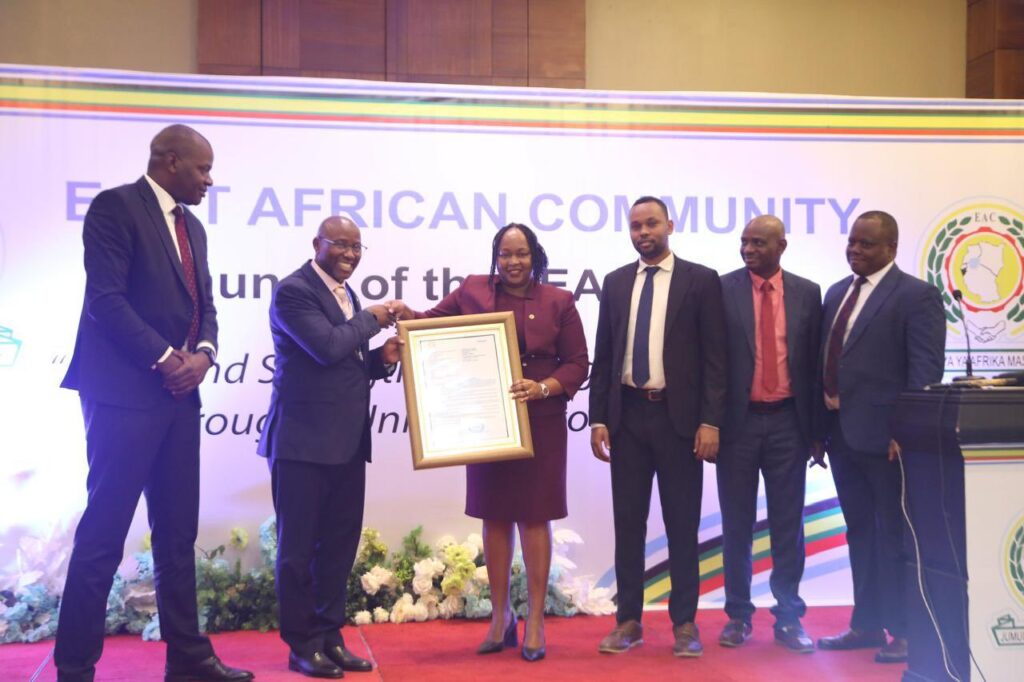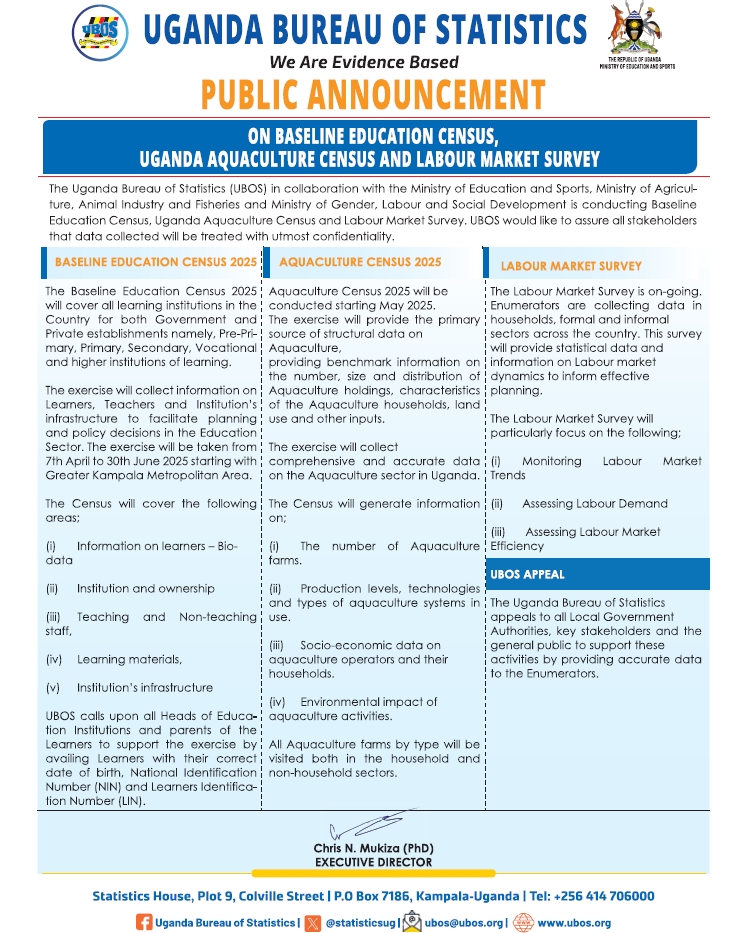The East African Community (EAC) has officially launched the EACBond, a groundbreaking regional customs guarantee instrument designed to streamline the movement of goods across member states.
Unveiled Monday in the Ugandan capital of Kampala, the EACBond replaces multiple national customs bonds with one unified system, allowing traders to secure their cargo journey under a single guarantee.
The EAC said the initiative is expected to significantly reduce trade costs, minimize border delays, and unlock capital previously tied up in bond deposits.
The high-level launch event brought together government officials, logistics firms, financial institutions, and customs representatives, said the statement.

The pilot phase will involve Uganda, Kenya, and Rwanda, with plans to roll out the system to all eight EAC member states — Burundi, the Democratic Republic of the Congo, Kenya, Rwanda, Somalia, South Sudan, Uganda, and Tanzania, it noted.
Veronica Nduva, EAC secretary general, emphasized the consumer benefits, noting that lower trade costs would make goods more affordable.
“It frees up traders’ money, allowing businesses to reinvest in expansion and jobs. It also boosts transparency and curbs fraud through real-time tracking,” she said.
The EACBond represents a major milestone toward harmonized customs procedures and enhanced regional economic integration, Nduva added

The EACBond is a key component of a wider digital trade facilitation infrastructure that connects customs, insurance, banking, ports and cargo tracking systems across the region. Since its rollout, RECTS has reduced transit times by up to 40 percent and saved Partner States over USD 250 million in revenue losses. The integration of the bond into this ecosystem enhances transparency, curbs fraud and safeguards government revenues while supporting compliant traders.
A customs bond is a financial guarantee that ensures the government can recover duties or taxes if a trader fails to comply with customs regulations. Traditionally, traders moving goods from the Port of Mombasa to destinations like Kampala or Kigali are required to post separate bonds or cash deposits at every border crossing, locking up capital at each step and inflating trade costs.
The EACBond eliminates these repetitive requirements by providing one bond that secures the entire movement of goods across EAC Partner States. This simplifies customs clearance, reduces operational expenses and allows businesses to reinvest their working capital into expansion and job creation.

Speaking during the launch, Uganda’s Minister of State for East African Community Affairs, Hon. James Magonde Ikuya, emphasized that the EACBond is a practical solution to long-standing trade barriers that have hindered regional business growth. He noted that the bond will directly benefit traders by lowering costs, easing cargo movement, and improving competitiveness in regional markets.
“The EACBond is a game changer for our traders. By eliminating multiple bond requirements, we are cutting unnecessary costs and speeding up trade across our borders. This will empower our business community, boost Uganda’s exports, and strengthen our participation in the regional economy,” Hon. Ikuya stated.
On her part, EAC Secretary General, Hon. Veronica Nduva, said the bond is set to lower trade costs by removing multiple bond charges at borders, ultimately making goods more affordable for consumers.

“The EACBond frees up traders’ money that was tied up in deposits, allowing businesses to reinvest in expansion and jobs. It also improves trade transparency through real-time tracking, reducing fraud and cargo diversion,” she stated.
Hon. Nduva further explained that the bond cuts border crossing delays by streamlining customs clearance procedures and strengthens government revenue collection by ensuring compliance and automating risk checks.
“Each year, over USD 35 billion worth of goods move through our regional corridors. Yet, much of this trade has been constrained by high financial guarantees and complex border procedures. The EACBond simplifies compliance, reduces operational costs and unlocks your working capital,” she added.
She noted that nearly USD 2 billion in previously tied-up capital will now be released back into the economy through digital guarantees, creating new opportunities in production, logistics, job creation and innovation.
On her part, EAC Deputy Secretary General for Customs, Trade and Monetary Affairs, Ms. Annette Ssemuwemba Mutaawe, stated that the EACBond is the result of a decade-long effort to establish a unified regional customs guarantee framework aligned with the EAC Customs Union and Single Customs Territory.
“Developed through a phased, consultative process, this bond reflects the collective resolve of governments and private sector partners to ease trade and unlock economic opportunities across East Africa,” she said


